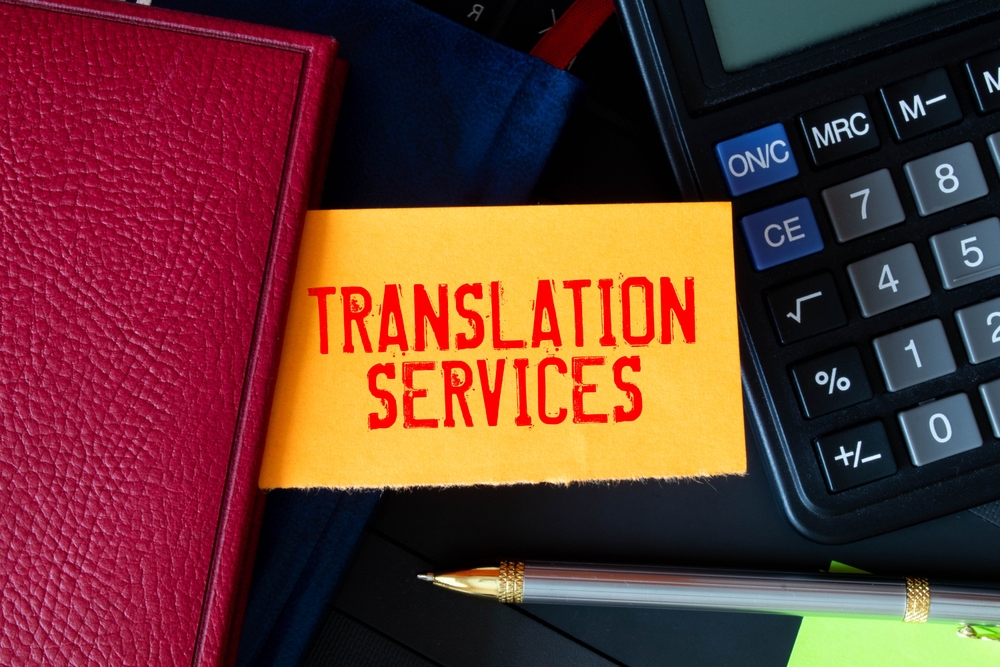
Common Challenges in Creole Language Translation
Translating any language presents its own set of challenges, but Creole language translation comes with a unique set of obstacles. Creole languages, which are often born out of a mix of multiple languages, cultural contexts, and historical circumstances, are complex, deeply nuanced, and constantly evolving. That means that, for businesses, corporations, and organizations that require Creole language translation services, understanding these challenges is essential to ensure accurate and culturally sensitive communication.
In our latest blog entry, we’ll explore some of the common challenges faced when translating Creole languages, why working with professional human linguists is critical for accuracy, and how we at Etcetera Language Group Inc. tackle these obstacles to provide high-quality translations for our clients.
What Is the Creole Language?
Before delving into the challenges of translating Creole, it’s important to clarify what Creole languages are. Creole languages typically emerge in regions where speakers of different languages come into prolonged contact, often due to colonization, trade, or migration. These languages evolve as a blend of multiple languages—often including elements from indigenous languages, European colonial languages, and other foreign languages—forming a new, stable language that is spoken natively by communities over generations.
- Haitian Creole, derived from French and West African languages.
- Louisiana Creole, also rooted in French, with influences from African languages, Native American languages, and Spanish.
- Jamaican Creole, based on English with significant West African linguistic influence.
Each Creole language has its own distinct rules, vocabulary, and cultural significance. This diversity makes translation both fascinating and challenging, especially for corporations looking to connect with Creole-speaking audiences.
The Complex Nature of Creole Languages
One of the biggest challenges in Creole language translation is the inherent complexity of these languages. Unlike more standardized languages like English, French, or Spanish, Creole languages often lack a single governing body or universally accepted set of rules that dictates grammar and syntax. As a result, there can be significant variations in how a Creole language is spoken or written depending on the region, social group, or even individual.
Dialects and Regional Variations
One of the most notable characteristics of Creole languages is the existence of multiple dialects. For example, Haitian Creole, while predominantly spoken across Haiti, can differ greatly depending on the region. A term or phrase that is commonly understood in one part of the country may be unfamiliar or have a completely different meaning in another part.
For a professional translation to be accurate, it’s critical to account for these regional variations and to understand the specific dialect being translated. At Etcetera Language Group Inc., we employ professional human linguists who specialize in the particular Creole language and dialect relevant to the project. These linguists are often native speakers or have extensive experience working with the cultural and linguistic nuances of the region.
Lack of Standardization
Unlike languages such as English or French, Creole languages may not have standardized spelling, grammar, or vocabulary. This lack of standardization can complicate the translation process, especially when the text in question is technical or legal in nature. For example, a single word or phrase in a Creole language may have multiple acceptable spellings, depending on the community using it.
When translating Creole, particularly for corporate or legal purposes, it’s crucial to ensure that the translation is consistent and aligned with the cultural and linguistic expectations of the target audience. Our human translators meticulously review and revise texts to ensure accuracy, clarity, and consistency, relying on their deep understanding of both the language and the cultural context in which it is spoken.
The Cultural Context of Creole Languages
Another key factor in translating Creole languages is the deep cultural context that underpins these languages. Creole languages are often tied to a history of colonization, resistance, and the blending of diverse cultural traditions. As a result, they carry cultural meanings and connotations that go far beyond the literal words being used.
Cultural Sensitivity and Meaning
A direct, word-for-word translation of a Creole language text will almost never result in an accurate or meaningful translation. This is because Creole languages often rely heavily on idiomatic expressions, proverbs, and culturally specific references that do not translate neatly into other languages.
For example, an expression in Haitian Creole that is understood and appreciated within the cultural context of Haiti may seem nonsensical or confusing when translated literally into English. To capture the true meaning of the text, a human translator must understand the cultural significance of the language and adapt the translation accordingly.
Idiomatic Expressions and Proverbs
Many Creole languages are rich in idiomatic expressions and proverbs, which are often deeply rooted in the history and culture of the community. These expressions can be difficult to translate into another language because their meaning is not always immediately apparent from the individual words.
Challenges in Machine Translation
Given the complexities of Creole language translation, machine translation tools, such as Google Translate or automated systems, are often insufficient. Machine translation relies on algorithms that can’t capture the nuance, cultural context, or regional variations of a language. While machine translation may work reasonably well for standardized languages, it tends to fall short when applied to Creole languages, which are more fluid and diverse.
Ensuring Quality and Accuracy in Creole Translation
Given the challenges involved in translating Creole languages, quality control is essential. At Etcetera Language Group Inc., we follow a rigorous process to ensure that every translation we produce meets the highest standards of quality and accuracy.
Collaboration with Native Speakers
Whenever possible, we collaborate with native speakers of the specific Creole language or dialect being translated. These translators bring invaluable insights into the cultural and linguistic nuances of the language, ensuring that the final translation is both accurate and culturally appropriate.
Multiple Rounds of Review
Once a translation is completed, it undergoes multiple rounds of review to ensure accuracy, clarity, and consistency. We understand that even the smallest mistake can change the meaning of a text, so we take great care to double-check every detail before delivering the final translation to our clients.
Partnering with Etcetera Language Group Inc.
At Etcetera Language Group Inc., we specialize in providing professional, human translation services for Creole languages and many others. And with our many years of experience, we understand the unique challenges that come with translating Creole languages, and we’re dedicated to ensuring that every translation is accurate, culturally sensitive, and of the highest quality.
So whether you’re a business looking to expand into Creole-speaking markets or an organization that needs reliable Creole language translation services, we’re here to help. Our team of experienced linguists is ready to assist you in bridging the language gap and ensuring that your message is understood clearly and respectfully by your target audience. Just contact us today to learn more about our Creole language translation services and how we can assist you in your next project.
More...
Categorised in: Translation Services





